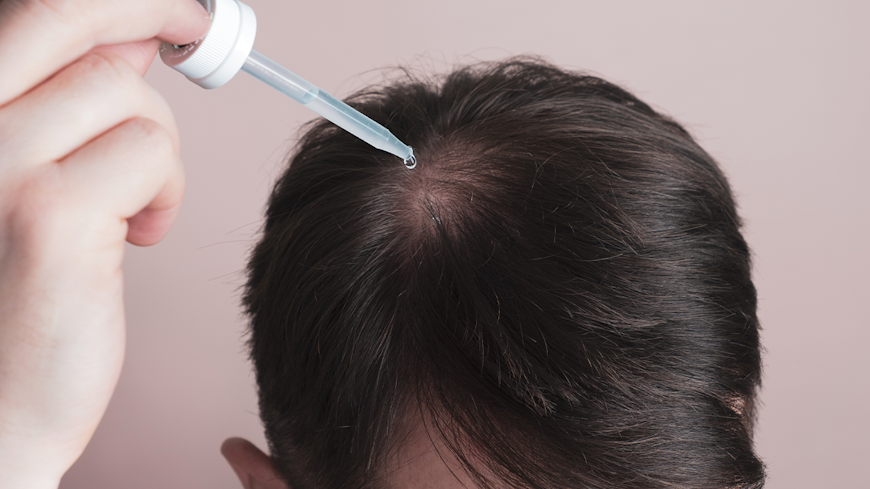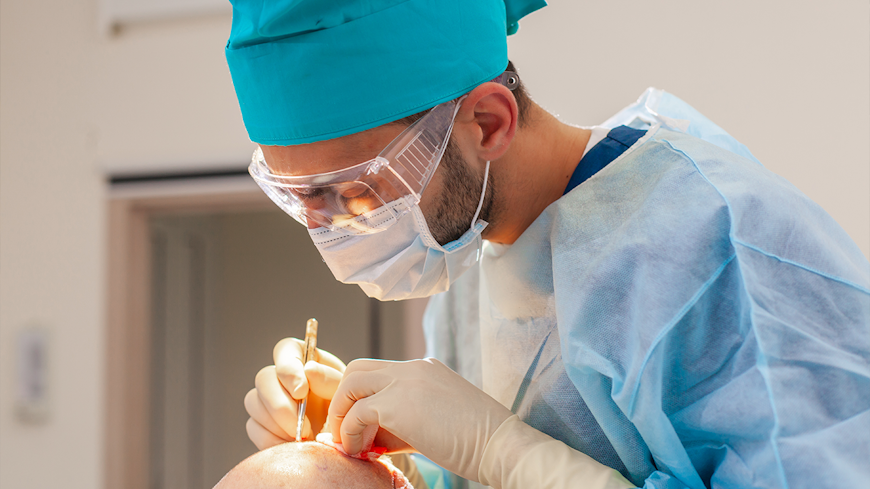By the time they turn 50, half of men and a quarter of women are affected by hair loss. When it kicks off, and how quickly it progresses, will have been decided before you were born. But there are options for those not ready to embrace what genetics has dealt.
We’ve spoken to two dermatologists for their views on hair loss treatments available in New Zealand.
What the experts say
Dr Amanda Oakley is a dermatologist at Waikato Hospital and professor at the University of Auckland. She says hair loss causes some people a lot of distress.
“They have been the target of marketing cures for baldness for millennia.”
The key things to remember are that you can’t cure hair loss that’s related to your genes, Dr Oakley said. But there are ways to stop hair from falling out and to regrow it – if treatment is started as soon as hair starts thinning. However, it has to be continued lifelong or balding will recur in just a few months.
Dr Bruce Taylor is a Wellington dermatologist with a special interest in hair loss. People who come to him for help with hair loss have usually been to a hair loss clinic first.
“They haven’t had good results despite the various treatments,” Dr Taylor said. However, he believes hair loss clinics have their place as there are so many people seeking help for hair loss that dermatologists can’t help them all. But he cautions against giving much attention to the before and after photos.
“If it’s taken from the right angle or combed the right way, we can do anything,” he said.
These are their thoughts on the options available.
Minoxidil
This is a solution or foam that you can buy over the counter at your pharmacy. Some recognisable brand names are Regaine, Rogaine and Regro. You rub it into your scalp daily but Dr Oakley says you won’t notice any change for several months.
“In fact, it sometimes causes hair shedding initially,” she said. It can be bought in 2 percent or 5 percent strengths, with the higher strength more effective but also more likely to cause irritation.
Dr Taylor said minoxidil has about a 30 percent chance of regrowing hair, with a higher chance of working if treatment is started early in the hair loss process.
“A lot of people are happy to keep using it while they’re waiting for something better to come along,” he said. “It just lets them hold on to it for a bit longer. Something else will come along soon – there’s so much thrown at male pattern baldness and there are some promising drugs in the pipeline.”
A patient can also be prescribed minoxidil as a tablet.
“More and more people are taking it by mouth and it seems to have more evidence [of success] and is not causing a lot of side effects,” Dr Taylor said.
With all minoxidil treatments, you’ll be back to square one within a few months if you stop using it.
All the hair you would have lost during that time will also fall out.
But Dr Taylor said it is a good option for young men, particularly teenagers, for whom balding is a major psychological issue.
“If only to get them through until they’re able to cope with it. I tell them all their mates are going to thin eventually and you can use these things until then,” he said.

Finasteride
Dr Taylor said finasteride pills (Propecia) are available for men on prescription and have about a 50 percent chance of regrowing a significant amount of hair. It has to be used for about three months to start seeing results and, as with minoxidil, the effect will be reversed if you stop using it.
Women who could be pregnant shouldn’t even touch the tablets though, as finasteride can cause baby boys to be born with abnormalities. Dr Oakley said
occasionally it is prescribed for postmenopausal women, but it is less effective than in men.
Spironolactone
This one is just for women because of its effect on male hormones. It’s a fully subsidised prescription medicine that’s usually used as a diuretic but also has the effect of reducing hair loss in women.
“We use a lot of spironolactone and it works well,” Dr Taylor said.

Supplements, including biotin
Dr Taylor said there was no scientific evidence that supplements work for hair loss, including biotin – a vitamin that’s often promoted as being able to help.
Dr Oakley said natural products aren’t classified as medicines so they don’t have any obligation to prove they work or are safe.
The Health Navigator website says the only useful study done on a supplement was on saw palmetto extract, but the results were inconclusive.
Hair transplants
Dr Taylor said new techniques are leaving people with “very good and natural results”. But the process is still very expensive and takes a long time. It’s also only suitable if you have a good amount of donor hair at the back of the scalp, he said. Dr Oakley said the process has become very high-tech.
“Nowadays it involves the extraction of tiny follicular units in strips or individually, sometimes using a computer-controlled robot to harvest donor follicles from the non-balding scalp at the back of the head, and to drill them into the areas affected.”
However, it will likely need repeating as more hair falls out, Dr Oakley said.

Laser therapy
Our experts’ opinions diverge when it comes to laser therapy. Dr Oakley said when light is delivered to the scalp by a comb or cap used for a few minutes three times a week, it could help some people grow back hair. But Dr Taylor is sceptical as he hasn’t heard of any positive real-life results: “I’ve never had a patient say it has worked but plenty who have said it hasn’t.” The Health Navigator website also says there’s no scientific evidence that the use of lasers is effective.
Platelet-rich plasma injections
There are plenty of places offering this treatment in New Zealand now and Dr Taylor said it’s “potentially a good treatment”. It involves taking a patient’s blood, spinning it in a centrifuge to extract just the platelets, and then injecting it into the scalp. “It’s potentially quite exciting – there is some evidence there.”
Where to turn for help
You can talk to your GP about hair loss. They will likely ask you some questions and check your scalp. They may arrange blood tests to rule out reasons for your hair loss, can prescribe some of the drugs mentioned above and could refer you to a dermatologist.

